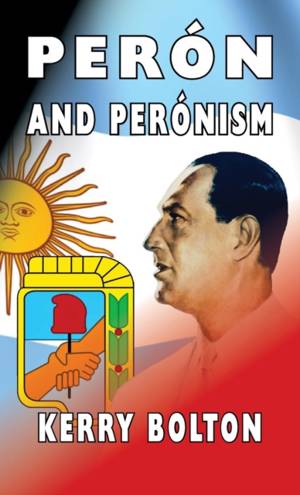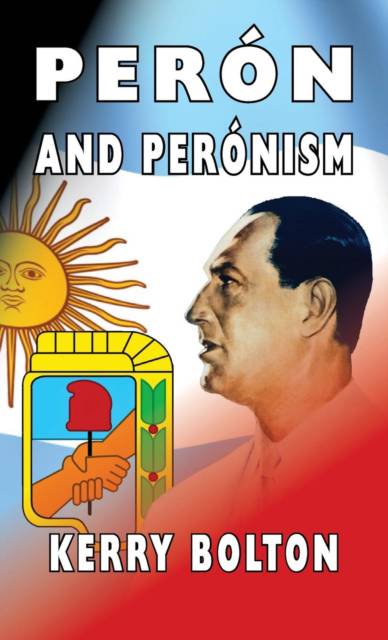
Je cadeautjes zeker op tijd in huis hebben voor de feestdagen? Kom langs in onze winkels en vind het perfecte geschenk!
- Afhalen na 1 uur in een winkel met voorraad
- Gratis thuislevering in België vanaf € 30
- Ruim aanbod met 7 miljoen producten
Je cadeautjes zeker op tijd in huis hebben voor de feestdagen? Kom langs in onze winkels en vind het perfecte geschenk!
- Afhalen na 1 uur in een winkel met voorraad
- Gratis thuislevering in België vanaf € 30
- Ruim aanbod met 7 miljoen producten
Zoeken
Omschrijving
Perón and Perónism, is unique, especially among English language books, insofar as it is not so much a biography of the remarkable Argentine president, but an explanation of Perónism in theory and practice. While the lives of Juan, and especially Eva, Perón are relatively easy to access, seldom is it that a biography of the Peróns, or even a scholarly history of Argentina, details the doctrine of Justicialism. In Perón and Perónism, Bolton draws on primary documents and speeches to define the Perónist doctrine that has moved the hearts and minds of the majority of Argentines for generations. Perón is shown to have been not only a great leader, who built the foundations of modern Argentina, but a philosopher who drew upon various philosophical schools, from Classical Greece onwards in synthesising a 'third position' that transcends capitalism and communism, Right and Left, and exposes 'demoliberalism' as a fraud. Here we also see a man of vision, an exponent of geopolitical blocs to counter globalist hegemony, whose ideals remain profoundly relevant in the age of globalisation.
Specificaties
Betrokkenen
- Auteur(s):
- Uitgeverij:
Inhoud
- Aantal bladzijden:
- 388
- Taal:
- Engels
Eigenschappen
- Productcode (EAN):
- 9780992736552
- Verschijningsdatum:
- 29/03/2014
- Uitvoering:
- Hardcover
- Formaat:
- Genaaid
- Afmetingen:
- 140 mm x 216 mm
- Gewicht:
- 594 g

Alleen bij Standaard Boekhandel
+ 105 punten op je klantenkaart van Standaard Boekhandel
Beoordelingen
We publiceren alleen reviews die voldoen aan de voorwaarden voor reviews. Bekijk onze voorwaarden voor reviews.









